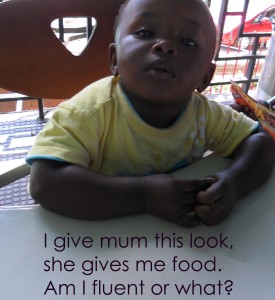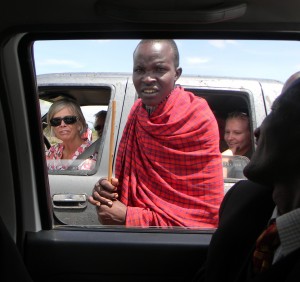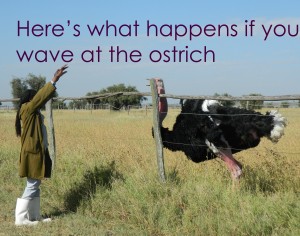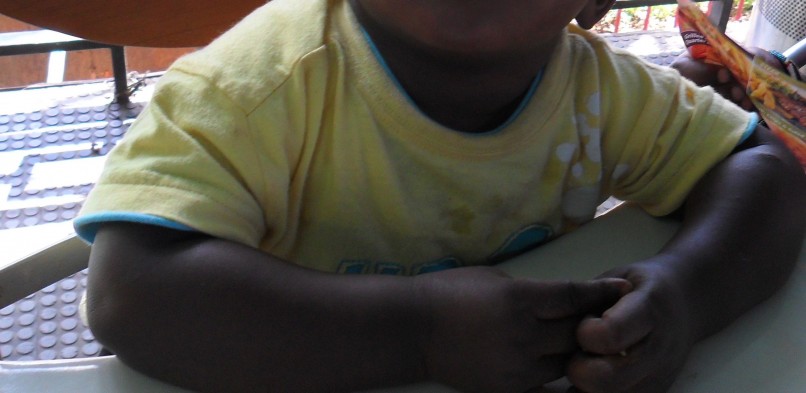By Tabitha Onyinge
As a communicator, I cringe whenever I hear a person being judged as not being fluent in a language, just because they speak it with an accent that reeks of another language. This is particularly common in Africa where one person may be a speaker of his and several neighbours’ mother tongues, a few foreign languages, and a national language, and all of them sound the same when he speaks.
Fluency merely means the ability to speak a language correctly and easily. 
A few years Ages ago, my friend Ndilai Resian, aka Res Res, who speaks numerous languages, sent me an interesting write-up to edit… read… use centuries later on my Blog page… I honestly can’t remember why shared it, yet I’ve referred to this piece several times in the years that it’s been in my possession. I couldn’t resist the temptation to share it with the world.
PS
This is a summary of the originally 3240 words long article that Res published in a Swiss Magazine. Enjoy…
This is What I Mean!
By Res Res
I grew up speaking Maasai, and only learned Swahili and English when I started school. My friends from other regions would later laugh at my Swahili accent, which was heavily influenced by the Maasai language. Interestingly, although I spoke English too with a Maasai accent, my friends said I spoke it very well. I preferred to speak in English. Looking back, it could have been my perception then of Swahili as a language spoken by traders.
My father’s elder brother married a beautiful lady from Kikuyuland, and that helped me learn Kikuyu and understand most other related languages – Embu, Kisii, Luhya and most of the coastal languages. Interestingly, I do not remember how I learnt Kikuyu, and whether it was hard or easy. I only remember speaking it with my “mother” (my uncle’s wife).
However, after spending four years in secondary school, I ran into my “mother” and could not speak with her, since my brain had shut off Kikuyu language, due to disuse. Unhappy with me, she told my parents that secondary school had changed my ways and made me rude to her. My parents understood that I just could not remember the language and we had a good laugh about how crazy school had made me.
her, since my brain had shut off Kikuyu language, due to disuse. Unhappy with me, she told my parents that secondary school had changed my ways and made me rude to her. My parents understood that I just could not remember the language and we had a good laugh about how crazy school had made me.
Later when I joined college, my roommate, a Kikuyu girl, always conversed in her language with a friend, and like a flood, all the Kikuyu came back and I started conversing in it again, to date. This reminds me of a gentleman I met while on a (30 hours almost non-stop!) bus trip in Mozambique. Originally from Tanzania, the man had not spoken in Swahili for 30 years, yet it took me only one Swahili word for his Swahili to flood back. He got so emotional I think we spoke for half of the journey!
There are some aspects of language that cannot be spoken or written, like sign language. Growing up, I do not remember interacting with anybody who was speech-impaired (mute) or had hearing problems. Therefore, it came to me as a shock when I was introduced to someone who had hearing impairment. I’ve often caught myself trying to communicate with him verbally, to which he retorts in sign language, “Can’t you see that I am deaf!”
Gestures, just like sign language, are another silent set of language. Sometimes we take gestures for granted and end up putting off the people we so want to communicate with. Greetings in my culture, involve young people bending their heads for older persons to touch them lightly. So it took me a very long time to realise the standoff that existed between my children and my friends.
My friends thought my children were rude, and my children thought my friends were aloof! I had to explain the different greeting styles – the head touch to my friends, and the open palm touch to my children. It was a horrifying experience for my children when another friend from a different community crawled down and extended her head to meet the children’s heads!
Gesturing goodbye by curling the palms in and out is confusing in my community, where it is the gesture for beckoning. You can imagine the amusement of our guests, as they drove off waving goodbye, and seeing us run after them confused on why they were torturing us!
Many people in my community have today incorporated clapping as an expression of joy or apreciation – originally it was an expression of horror! For the longest time, we Maasais wondered why the Samburu (our sub-tribe) integrated clapping into their song and dance. We excused them as having picked the bad habit from their close neighbours, the Turkana.
Finally, when you tell me that we have lost a dear friend – touch wood – do not be disgusted or horrified if I just stand still and spit! It simply means that I accept the loss, however painful it may be!






